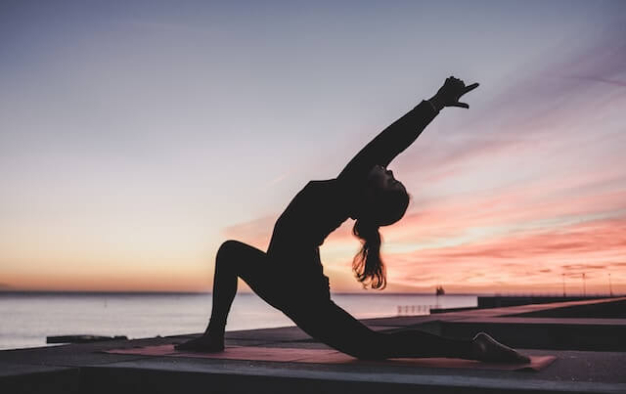Complementary Therapies for Traumatic Brain Injury

Contact
Table of Contents
Complementary therapies can be extremely effective for those who have experienced serious injury – not as an alternative to serious medical help but as an additional method of bringing comfort to a sufferer. Alongside treatment, they can provide unique ways of relaxation and calm during a stressful time once the individual has received medical help and has been released from hospital.
With many different options available, a sufferer can choose the method that best suits them, their lifestyle and their injuries, and try it out to see whether or not it aids them during recovery. While official studies and medical tests are less than unanimous in recommending various complementary therapies, many people find that it helps them to personally gain a sense of relaxation during a therapy session – just as many people may turn to methods such as meditation in order to release tension and help them to cope with stress or discomfort.
Homeopathy
This form of therapy aims to trigger the body’s natural repair systems by using substances chosen through the concept of ‘like cures like’, originally developed in the 1970s. The theory is that a substance that causes symptoms can also reduce them if given in an extremely diluted form. The more diluted the pill, capsule or tincture, the more effective the treatment.
Specifically in relation to brain injury, homeopathic medicines are chosen individually, due to the very individual nature of that type of injury. The symptoms and ongoing effects can differ from person to person based on the location and extent of the injury, so TBI sufferers are treated individually in order to receive the best therapy. However, several common substances are central to TBI homoeopathy treatment. These include arnica, which can reduce swelling and pain and help ease shock following the injury, St John’s Wort for calming seizures and hellebores which can aid in improving thought processes and concentration levels, which can be dulled following brain injury.
Acupuncture and acupressure
An ancient Chinese method that centres around the idea of the flow of energy (or ‘Qi’) moving through the body. Some scientists believe inserting fine needles into the body (as found in acupuncture) or creating pressure on certain areas using fingertips (as in acupressure) has benefits in stimulating nerves and muscle tissue.
When used on those who have experienced brain injury, it is said it can encourage cognitive function which is sometimes lessened as an impact of the injury. TBI can affect memory, general mood, personality and cause anxiety or depression. A small American study carried out in the University of Colorado Boulder involved TBI patients who were required to complete neuropsychological tests before and after receiving treatments. The results showed a marked improvement in ability following acupressure therapy. Again, the study was small and the reliability of acupuncture as a treatment is debateable, but many experience positive effects of increased energy and clarity.
Aromatherapy
Utilising the different properties of essential oils, aromatherapy can ease neurological and psychological issues via the limbic system in the brain. Massage or inhalation with various oils can have a positive impact on mood and wellbeing – lavender, for example, being one of the most well-known for aiding relaxation and comfort.
For brain injury, the benefits of aromatherapy are specifically related to the oils used, and therefore can be tailored to the individual’s symptoms and the ongoing effects of their injury. Stimulating oils such as basil and black pepper can be used to invigorate, or calming ones such as orange and neroli can be used in times of stress. Therefore, they have little direct correspondence to brain injury but in general are regarded by some as being extremely beneficial for general wellbeing, health and mood.
Yoga
Focusing on calming, relaxing and stretching, the practice of yoga is often recommended as a process of healing both body and mind through relaxation and meditation. It is also said to ease physical injury and stiffness to joints. Yoga teachers can adapt poses (referred to as asanas) to complement an individual’s health and ability.
For many people with brain injury, understanding and carrying out physical tasks can be difficult, due to its effect on spatial judgements, balance and motor co-ordination. While some TBI sufferers may be physically able to move freely, the issue can be in processing the need for movement and how to actually carry it out – known as dyspraxia. Even normal tasks like putting on shoes or a coat can be extremely difficult as an individual struggles to process the various physical requirements involved. Therefore, yoga can help to regain confidence in this aspect, as its processes focus on the flow of movement. While it may take a TBI sufferer much longer to grasp what others would regard as a simple pose, the repetitive nature of the lessons can help to retain sequential processing and encourage this ability.
Reiki
A spiritual practice that uses hands-on-healing techniques to balance chakras holistically – or energy points within the body. They aim to energise an individual physically and emotionally by placing their hands over these areas. This free-flowing form of energy is also used in yoga and acupuncture and acupressure.
The energy healing method allows for a deep sense of relaxation, which can aid brain injury sufferers who may have been affected by personality changes. Increased stress, anger and anxiety can occur in those who have experienced TBI, and the therapy can encourage a calm and peaceful period of time in which they can relax and ease these emotional symptoms. Furthermore, TBI predominantly affects the 7th chakra in the brain or the crown of the head. Reiki practitioners believe that this chakra influences the whole body, much in the way that the brain does, and the extra attention of the healing energy towards this area can have an extremely wide-ranging spiritual impact throughout the whole self.
For all complementary therapies, evidence is mixed. While professional practitioners in all of the above areas would testify to their effectiveness, they would also ensure an individual has completed all necessary medical diagnosis and treatment before complementary therapy starts or that the two therapies will work simultaneously. Complementary therapies are designed to be exactly that – ‘complementary’ to existing medical care, and may focus on the emotional treatment of an individual or aid in developing physical processes. Therefore, choosing a complementary therapy is a personal choice, and gauging its effectiveness is very personal. However, none of the therapies have damaging or adverse effects and, therefore, can provide an effective and useful way for individuals to support their recovery and gain an overall sense of wellbeing and comfort.
Our solicitors have a special interest in early rehabilitation issues for the seriously injured, particularly those with severe brain injuries, paraplegia or tetraplegia. We pursue defendants for initial compensation payments from the outset to establish effective care and therapy regimes and to secure appropriate housing.
To speak with one of our specialists injury solicitors call us or fill in our online enquiry form.
Share this article


